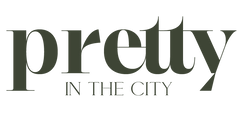The Reason I Eat Brussels Sprouts

I wouldn’t say it’s because I love the taste of them…
After working in the beauty industry for 10 years, my goal was to explore the significance of connecting diet with skin health.
This led me to pursue a degree in nutrition and further studies in health coaching and gut health. I learned the importance of nurturing gut health and using an anti-inflammatory approach to improve skin conditions.
One of the most beneficial things you can do to improve your gut health, and ultimately your skin is to nurture your gut microbiota.
This is where the Brussels sprouts come in; however, they are not the only option!
We understand that probiotics, quality sleep, stress management, and consistent exercise are all essential for gut health. Yet, it's crucial that we feed the diverse species of beneficial bacteria already present in our gut.
And you know what? Different microbial species need us to eat specific plant-based foods to nourish them.
Without diving too deep into the world of bacteria and their dining habits, here's a quick rundown of some of the main characters and why this matters.
- Faecalibacterium - helps regulate immune responses within the gut environment
- Bifidobacterium - helps your body perform essential functions such as digestion and staving off harmful bacteria
- Lactobacilli - helps prevent harmful bacteria from colonizing the intestines & also ensure the lining of the intestines stays intact
- Roseburia - helps maintain intestinal immunity
- Akkermansia muciniphila - helps strengthen the gut lining
What kind of foods support the growth of these microbial species?
Prebiotics are a group of nutrients found in plant-based foods that encourage the growth of beneficial microbes.
Different types of prebiotics include:
- FRUCTOOLIGOSACCHARIDES (FOS) can be found in foods such as asparagus, beetroot, blueberries, Brussels sprouts, cashews, garlic, leeks, red lentils, nectarines, snow peas.
- INULIN e.g. barley, grapefruit, artichoke, whole wheat pasta.
- GALACTOOLIGOSACCHARIDES (GOS) e.g. spelt, split peas, black beans, oats, cashews.
- PECTIN e.g. apples, apricots, carrot, oranges, kiwi fruit.
- ARABINOXYLAN (AX) e.g. almonds, flaxseed, rice.
- RESISTANT STARCH (RS) e.g. bananas -slightly green, chickpeas, potato salad.
- PROANTHOCYANIDIN (PRO) e.g. dark chocolate, pecans, cinnamon, cranberries.
The main message to remember is the importance of diversity in your diet. Different species benefit from a variety of prebiotic fibres, so it's essential to include a wide range of colourful plant-based foods in your diet. Knowing this, when I eat Brussels sprouts, I’m mindful that I'm consuming a prebiotic fuel that promotes the growth of helpful microbes.
If you're interested in exploring your diet further, I would be delighted to assess and evaluate your current eating habits.
I can provide a personalised eating plan tailored to your specific needs and goals.
Explore further by clicking HERE.

